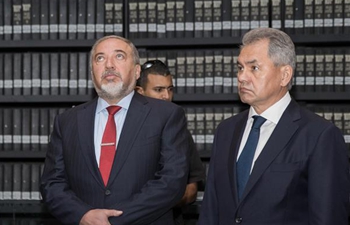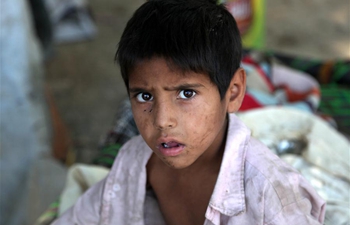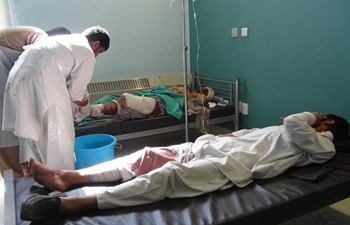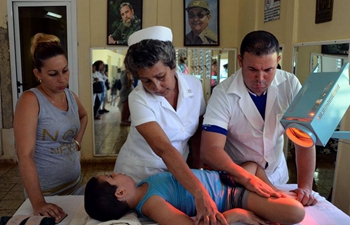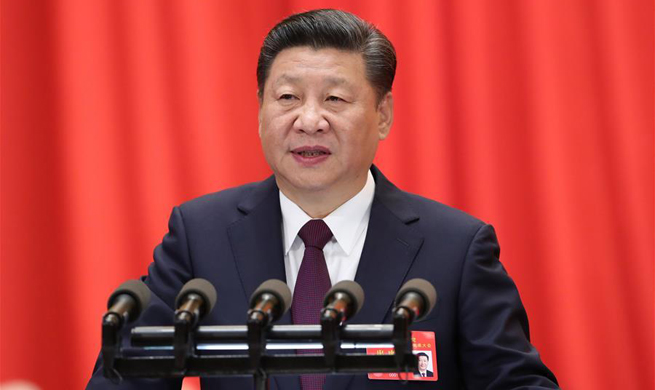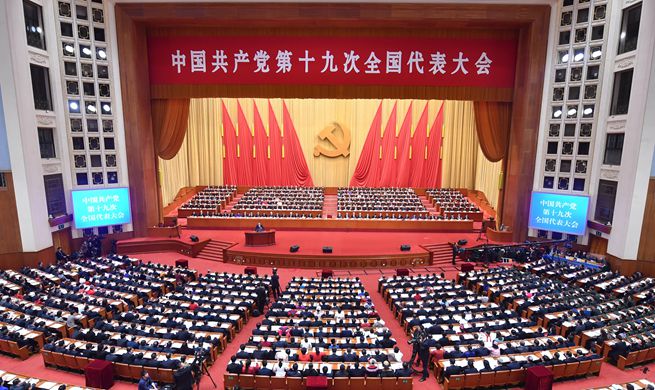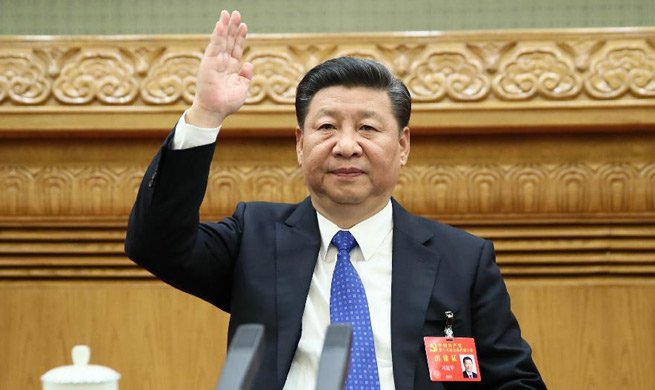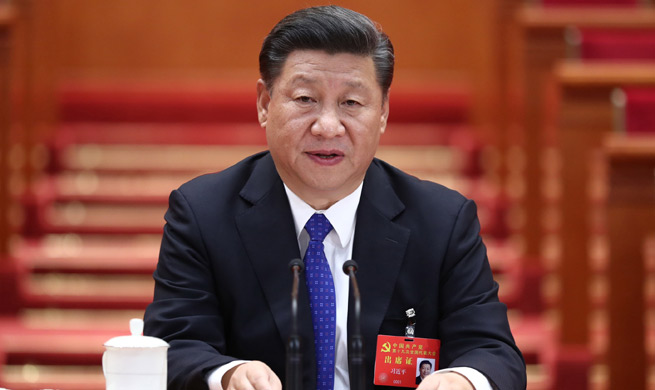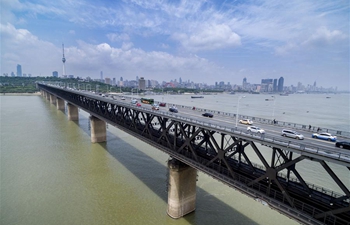MOGADISHU, Oct. 18 (Xinhua) -- The Somali capital of Mogadishu is still coming to terms with the Saturday bomb attack which has so far claimed over 300 lives as rescue and recovery teams continue moving the rubble to find trapped victims.
As the families bury the dead and at least three countries airlift the injured for further treatment, questions still abound, with little answers coming through.
Residents have taken to the streets condemning the attack which the government has blamed on the Al- while the terror group has strangely not claimed responsibility.
The group which has claimed credit for several attacks in the past has not said a word even though all indications point to its involvement.
No known group in Somalia could carry out an attack of such magnitude. Pockets of the Islamic State in northern parts of the country have claimed responsibility for targeted killings in the semi-autonomous region of Puntland where an Al-Shabaab break-away faction sprouted from in 2015.
Abdirahman Nur, an independent security analyst based in Mogadishu, concurs with the country's president Mohamed Abdullahi Mohamed, widely known as Farmajo, on where the blame should be directed at Al-Shabaab. Nur says no group in Somalia has carried out such major attacks in Somalia apart from Al-Shabaab.
"They might have been carried out by Al-Shabaab. But they decided not to claim responsibility because they missed out on their target. It hit the wrong target because the security forces got intelligence about the truck," Nur told Xinhua on Tuesday.
"We can deduce from the magnitude of the explosion that Al-Shabaab was targeting important and strategic sites," he added.
Nur said the group also failed to claim responsibility because they feel they lost public sympathy since most of the victims were civilians and their motive for the carnage cannot be established.
The extent and magnitude of the explosion which flattened buildings around the scene and its impact felt more than two kilometers away also raises questions about the capacity of Al-Shabaab to build bombs of such lethal capacity.
Nur, who has been studying the vehicle borne improvised explosive devices (VBIED) trends in Mogadishu, said the group has acquired sophisticated weaponry from the African Union bases which it has attacked on several occasions.
"The magnitude of this bombing could be attributed to the weapons Al-Shabaab has acquired from AMISOM bases it has ambushed several times. You can see from this case that it must have increased the quantity of explosives material. It is not the configuration of weapons. It is a mix of locally available materials and what they have acquired," said Nur.
It is not yet clear where the truck loaded with explosives was heading to but sources have indicated it could have been destined to the foreign affairs ministry headquarters which is barely 100 meters away from the scene. Sharmarke Muhidin survived by a whisker.
"I saw a huge truck running over public transport vehicles and in a flash it went burst. I blacked out and later found myself in hospital," said Sharmake who is nursing injuries on his arms and legs in a city hospital
The three-day mourning period declared by President Farmajo comes to a close Wednesday, paving way for directions on what the government will take in the wake of what has been described as the worst terrorist attack not just in Somalia but also in the region.
Abdulkadir Abdirahman Adem, director of the Amin Ambulance Service, told Xinhua the number of dead had risen to 303 by Tuesday.
"We have been able to move more bodies recovered from the rubble and the number now stands at 303. This is the most lethal attack ever in Somalia," said Aden.
"The government is likely to launch a massive offensive against Al-Shabaab. With the good will of the international community following the attack, Somali government will be asking for international help to ramp up offensive against the group," Omar Farah, a journalist from state-run Somali News Agency (SONNA) told Xinhua.
Farah added that it is possible that the government could impose a state of emergency as it seeks to hunt down terror cells especially within the capital Mogadishu.
Donors were supposed to meet this month to make commitments to fund the National Security Architecture (NSA) which was approved by international partners during the London Conference.
However, the government said last week the meeting will instead take place in December. The NSA is a critical component of the Security Pact agreed in the London Conference which among others charts the course from African Union forces exit as from next year.
Somali troops still do not have the capacity to take charge and it will require concerted efforts by the international community to empower the force to take full charge ahead of expected total exit by AMISOM after the 2020 general elections.
As rescue efforts continue, grief has engulfed Mogadishu as families try to understand what befell them. Almost everyone knows someone who was affected in this attack.
Anfac Abdullahi, the sister of Maryam Abdullahi who had just completed her medicine degree and was anxious to graduate the following day, said the family could not come to terms with the death of their sister.
A call shortly after the blast dampened family's hopes of not only attending their daughter's graduation but also not seeing her again.
"I had just got back home when the explosion went off. I called my sister since I knew she was around KM5 area but someone else picked her phone and said she had died. We rushed to the scene after the situation calmed and managed to spot her body. Bodies were strewn all over the place," Abdullahi said.
"She was to attend her graduation October 15 but we had to attend her funeral," Abdullahi told Xinhua by phone as she sobbed.
A team of youth Tuesday joined the rescue and recovery teams in clearing the rubble and cleaning the place. Police said they believe there are no more bodies left.
"We cleaned the place and the situation is gradually returning to normal and the last body was taken out from the rubble today," senior police officer Mohamed Dahir told Xinhua at the scene.




